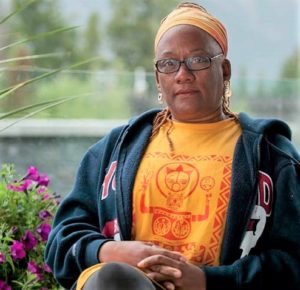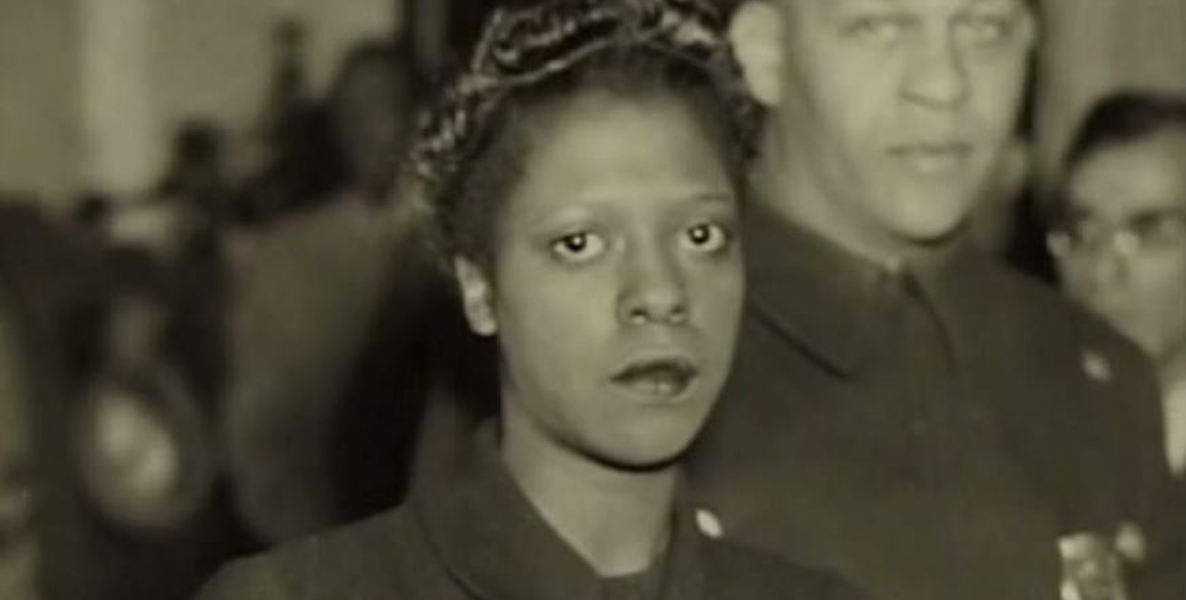These days, everyone fancies themselves a filmmaker—from teens wielding iPhones to capture their unamused cat, to dads perfecting their digital techniques, to students dabbling in the “ancient” art of film.
Everyone, it seems, has latched onto the same notion: cameras, good.

For Coatesville native and Temple alum Tina Morton (right), even those smallest of personal stories matter; they are the heart of what she does as a filmmaker, media activist and associate professor at Howard University, where she nurtures budding filmmakers. “It’s important for people to tell their own personal stories, because nobody else is going to do it,” she says.
Morton’s story as a filmmaker starts in the 1980s, when she worked as a hospital x-ray technician. After attending the Philadelphia Festival World Cinema in the late 80s, she felt compelled to follow her true love: film. She called Linda Blackaby, the director of the festival, looking for ways to get involved.
From there, she found her way to Scribe Video Center, the Philly-based media production educational center established in 1982 to teach film, video, and audio production, and the resource Morton credits with giving her the foundation she needed.
“Scribe empowers the community to tell their own stories, and since I came up with Scribe, that’s my ethos [as a teacher]. ‘I’m not gonna tell your story, let me teach you how to tell your story,’” Morton says.
Morton took every workshop Scribe offered and learned under the tutelage of Louis Massiah, Scribe’s executive director. Her first project, completed in 1997, was called Severed Souls, and centered around Corrine Sykes, the first Black woman to be wrongly executed for murder in the state of Pennsylvania.
“Your personal story is important,” she says. “And the small stories are larger stories, because it’s your little space right here that affects a whole body of folk who may be going through the same thing.”
With Philly as a backdrop, Morton has uncovered countless stories about individuals and milestones here. “Philadelphia,” she says, “is a really good space and place to be a filmmaker.”
Now the student turned professional and professor has become the subject of a retrospective at the place that nurtured her: From September 18th through the 20th, Scribe Video Center will host Body of Work, an in-depth look at and conversation with Morton.
Ranging from seven minutes to an hour, each film in the exhibit is a documentary-style production focusing on developments in vastly different Black communities. Severed Souls will be shown, as will When We Came Up Here, a series of short documentaries about the role The Philadelphia Tribune played in sharing information with people who were part of the Great Migration from the South, and particularly to Philadelphia.
Through all of her work, one constant has remained: “I really hardly ever To Scribe and Philly CamDonate
Looking beyond this week’s show, Morton has teamed up with Lois Fernandez, creator of the Odunde Festival in Philly, to tell the story of how Odunde, the largest African American street festival in the U.S., now in its 45th year, came to fruition.
“It’s just such an important story,” Morton says. “All the stories are important, but I don’t yet know what story I want to tell about Odunde.”
“Philadelphia,” she says, “is a really good space and place to be a filmmaker.”
As a professor, Morton strives to teach her students the importance of ethical filmmaking, the value of their own time and worth, and an appreciation for the tools they have free access to through their school. She urges them to find meaning in their own personal stories.
“Your personal story is important,” she says. “And the small stories are larger stories, because it’s your little space right here that affects a whole body of folk who may be going through the same thing.”
September 18-20, 7–9 pm, Scribe Video Center, 3908 Lancaster Avenue, $5.
Header photo is a screen capture from Tina Morton's short film "Severed Souls"



